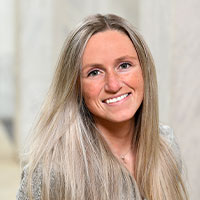- Membership & Community
-
Publications & News
- Physiology Journals
-
Newsroom
-
The Physiologist Magazine
- 2019
- 2020
- 2021
- 2022
- 2023
- 2024
-
In Depth
- In Depth—The Bear Necessities
- In Depth: Understanding Circadian Rhythms
- In Depth: Understanding Data
- In Depth: Exercise Physiology: Take Your Medicine at the Gym
- In Depth: Neurodegenerative Disorders
- Imaging Methods Unveil the Invisible
- Rewiring the Brain: Breakthroughs in Neural Therapy
- What’s Coming Next for GLP-1 and Metabolic Disease Treatment
- Understanding the Effects of Maternal Exercise
- How Muscles May Hold Cues to Better Sleep
- The Science Behind Breathwork and Mental Health
-
Mentoring Forum
- Net Worth
- Take Care
- You … In Charge
- Work. It. Out.
- Working Off-site
- Location, Location, Location?
- Student Support
- Progressing to Postdoc
- Relationship Building
- Let’s Get It Started
- What Do We Value?
- It’s a Postdoc Life
- Coronavirus Contributions
- Creative Communications
- Selection Process
- Conference Connections
- Postdoc Appreciation
- Research Rewards
- Focus on Teaching
- Industry Insights
- Balance Beam
- Post Postdoc
- If You Build It
- Talk It Through
- Forward Bound
- I’ve Earned My PhD. Now What?
- University Life
- Tips for Trainees
- Time Travel
- Prepare Now for the Career You Want
- Landing a Postdoctoral Researcher Position
- Becoming a Physician-Scientist
- Mastering the Art of Science Communication
- Setting Yourself Up for Success in the Lab
- From Postdoc to Professor: Key Strategies for Success
- How to Stay Motivated in Challenging Times
- Staying Motivated Throughout Your Science Career
- Managing Stress and Workload During Your PhD
- Stay Passionate About Your Physiology Career
-
Policy IQ
- Policy IQ—2023 in Review: How APS Advocated on Behalf of Physiologists
- Policy IQ—Supporting Equitable Research
- NIH's Road Map to a Better Postdoc Experience
- The Career Path to Science Advocacy
- Culture of Safety: Stopping Sexual Misconduct
- Physiologists Return to Capitol Hill
- Tips for Scientists to Communicate about Animal Research
- Science Advocacy in a New Political Landscape
- Tips for Making the Call to Congress
- Science Spending Is an Investment
- Advocacy Up Close and Personal
- How Animal Research Advances Physiology and Medicine
-
Publish with Polish
- Publish with Polish
- The Layers of Open Science
- Take Your Content From Meeting to Manuscript
- APS Journals to Highlight Women’s Health Research
- What Subscribe to Open Means for APS Members
- The 5 Pillars of Publish with Purpose
- 3 Types of Metadata Researchers Should Know About
- Navigating Open Access and New Licensing Options
- Journal Manuscript Prep Made Easy
- How to Navigate Public Access Requirements
- Ensuring Public Trust in Publishing
- Improve Your Scientific Figures With APS and BioRender
-
Under the Microscope
- Equine Inspiration
- Inquiring Minds
- The Power of Teaching
- The Love of Physiology
- Understanding Women's Physiology Across the Lifespan
- Studying Human Health in Extreme Environments
- Advancing Kidney Health and Physiology Research
- How Gut Microbes Shape Blood Pressure and Drug Response
- Battling Malaria
- Exploring the Microbiome
- From Physics to Physiology: A Scientist's Unconventional Journey
- Mentoring Q&A
- Evolution
- Baseline by Scott Steen, CAE, FASAE
- 2025
- Find Us on Social Media
-
The Physiologist Magazine
-
Professional Development
-
Meetings & Events
-
American Physiology Summit
- #APS2024 Overview
- Abstracts
- Awards at the Summit
- Award Lectures
- Career Networking Lunch Form
- Dates and Deadlines
- Advocate for Health Research Funding
- Hotel Information
- International Travel Information for Summit Attendees
- Industry Partners
- Mobile App
- NIH and NSF Program Officer Panel Discussion Form
- Physical Poster Information
- American Physiology Summit PhysioHub
- Pre-Summit Events
- Registration
- Section & Group Banquet Tickets
- Social Events
- Speaker Audiovisual Instructions
- Summit FAQs
- Travel & Transportation
- Undergraduate Program Book
- Liability Waiver
- Industry Partners
- Joseph Erlanger: Pioneering Nerve Research and APS Leadership
- 2023
- 2024
- Scientific Integrity Policy
- Exhibitor Registration Form
- Keynote Speaker Tracy L. Bale, PhD
- Keynote Speaker Jennifer Lippincott-Schwartz, PhD
- Career Day Workshop: Own Your Path, Positioning for the Career That Fits You
- From Concept to Classroom
- New Trends in Sex Differences and Women’s Health Research
- Control of Renal Function in Health and Disease
- Comparative Physiology Conference
- Webinars
- Future APS Conferences
- Conference Policies
-
American Physiology Summit
- APS Awards
-
Career & Professional Development
-
Career Gateway
-
Resources
- Transcript—Leading Through Conflict and Difficult Conversations
- Transcript—Managing Conflict with Colleagues
- Transcript—Leading a Team Through Conflict
- Transcript—Providing Difficult Feedback
- Transcript—Team Dynamics and Culture Primer
- Transcript—Building a Team
- Transcript—Leading a Team Assigned to You
- Transcript—Creating a Team Culture
-
Resources
- Career Navigator
- Center for Physiology Education
- Virtual Courses
- Physiology Job Board
- APS Graduate Physiology & Biomedical Science Catalog
-
Career Gateway
-
Meetings & Events
-
Advocacy & Resources
- Science Policy
-
Resources
- Researcher Resources
- Educator Resources
- Trainee Resources
- Student Resources
-
APS Graduate Physiology & Biomedical Science Catalog
- Des Moines University
- George Washington University
- Michigan State University
- New York Medical College
- Nova Southeastern University
- Pennsylvania State University
- Texas A&M University
- Texas A&M University Medical Physiology
- Stony Brook University
- University of Alabama at Birmingham
- University at Buffalo
- University of Colorado
- University of Michigan
- University of Minnesota
- University of Missouri-Biomedical Sciences
- University of Nebraska Medical Center
- University of Nevada, Reno
- University of South Carolina School of Medicine
- University of Tennessee Health Science Center (UTHSC)
- University of Texas Health Science Center
- Virginia Commonwealth University
- Wayne State University
- Physiology Department Catalog Submission Form
- Boston University
- Career Gateway
- Major Initiatives
- About APS
Consuming more carbohydrates and vitamins B12 and C linked with going to sleep and waking earlier

Long Beach, Calif. (April 21, 2023)—What you eat might influence when you go to sleep, according to a new study of elite female college athletes. Researchers will present their work this week at the American Physiology Summit, the flagship annual meeting of the American Physiological Society (APS), in Long Beach, California.
The study revealed that athletes who consumed more carbohydrates and vitamins B12 and C tended to go to sleep earlier and wake earlier than those who consumed less of these nutrients. According to the researchers, these nutrients might increase synthesis of vital hormones that regulate sleep, including serotonin and melatonin. “For athletes, success is measured not only by readiness to perform but also resiliency on and off the field,” said the study’s first author Lauren Rentz, a doctoral student at West Virginia University. “We know that sleep helps the body heal from daily physical and mental stress and influences future physical and mental performance. The relationship between sleep and nutrient intake hasn’t been researched as thoroughly in high-performing athletes, who consistently experience large amounts of stress.”
For the study, researchers evaluated the sleep and nutritional patterns of 23 female collegiate soccer players. The athletes wore a smart ring that tracked their sleep for 31 consecutive nights during the competitive season. During the final three days of the evaluation, athletes recorded their dietary intake.
The analysis revealed associations between nutrient consumption and sleep timing but not sleep duration. It also showed that most athletes averaged seven to eight hours of sleep a night and met recommended intake for many vitamins. However, about half of the athletes were deficient in vitamins A and K as well as protein, and almost all failed to consume recommended amounts of vitamin D and carbohydrates.
“The use of wearable technology has become very popular among athletes, and our study shows how wearable data can be used by practitioners or athletes themselves to become more in-tune with their health,” Rentz said. “Wearables are great for capturing the body’s response to physiological stressors without adding more stress.”
The researchers caution that their results shouldn’t be interpreted as cause and effect, but rather show how various aspects of health can simultaneously contribute to performance and recovery potential. Next, they plan to evaluate similar health patterns in a larger group of people and examine how these patterns may influence athletes’ success.
NOTE TO JOURNALISTS: The American Physiology Summit will be held April 20–23, 2023, in Long Beach, California. To schedule an interview with the researchers, conference organizers or presenters, contact APS Media Relations or call 301.634.7314. Find more highlights from the meeting in our Summit Newsroom.
Physiology is a broad area of scientific inquiry that focuses on how molecules, cells, tissues and organs function in health and disease. The American Physiological Society connects a global, multidisciplinary community of more than 10,000 biomedical scientists and educators as part of its mission to advance scientific discovery, understand life and improve health. The Society drives collaboration and spotlights scientific discoveries through its 16 scholarly journals and programming that support researchers and educators in their work.
Related Content
- Erlanger Family Gifts Renowned Physiologist’s Nobel Medal to APS
- Popular Sugar Substitute May Harm Brain and Heart Health
- Steroid Medications Given Before Preterm Birth Improve Lung and Placental Function
- Find Us on Social Media
- The Latest Scientific Research on Sex Differences in Nutrition
- Wolfgang Kuebler Receives American Physiological Society’s Presidential Service Award at American Physiology Summit
- Nobel Laureate, Prestigious Award Recipients to Speak at American Physiology Summit
 Media Inquiries
Media Inquiries
Contact the Communications Department to:
- Interview a scientific expert.
- Request a study or journal article.
- Get background and resources on physiology.
Email communications@physiology.org or call 301.634.7314.

